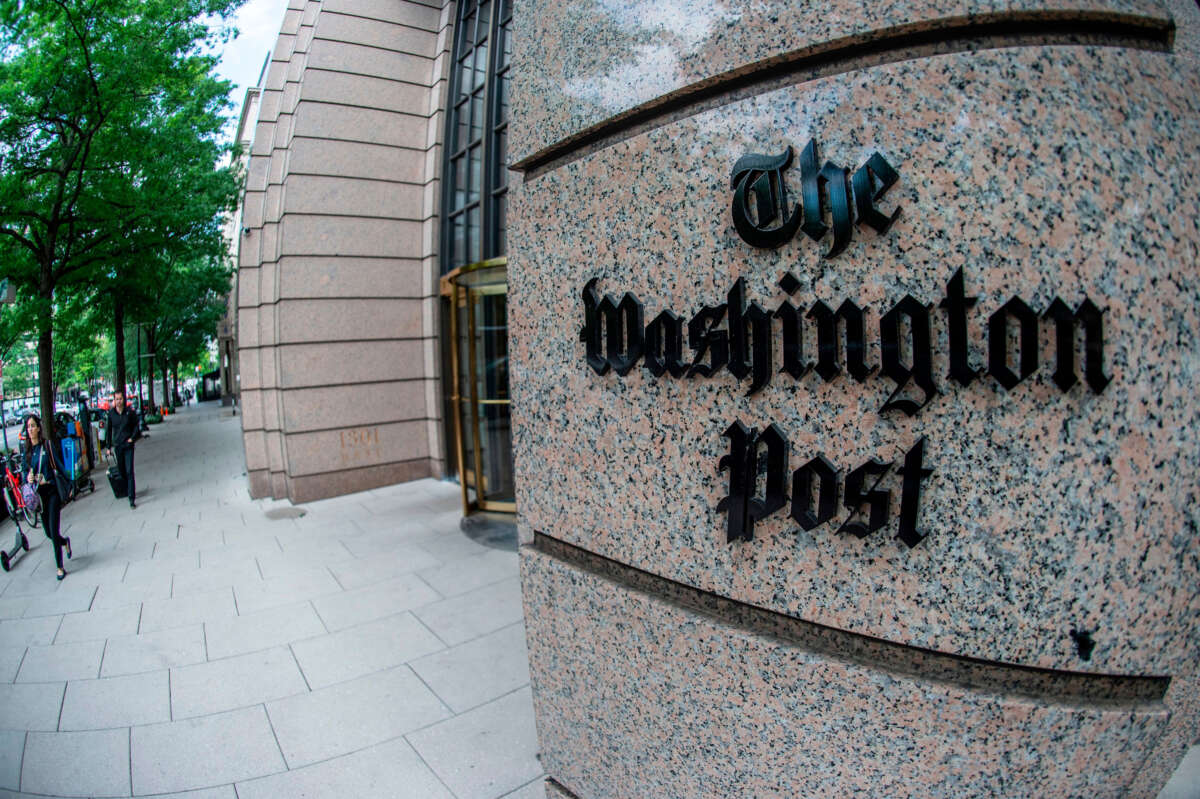A longtime cartoonist for The Washington Post has resigned in protest after the paper refused to publish her cartoon depicting multiple billionaires, including the Post’s owner, Jeff Bezos, bowing down before president-elect Donald Trump.
Ann Telnaes, a Pulitzer Prize-winner who has drawn political cartoons for the Post since 2008, crafted a cartoon that included Bezos, Meta owner Mark Zuckerberg, OpenAI founder Sam Altman and Mickey Mouse (representing the broader Disney brand). Each of the human participants in the cartoon was shown handing large bags of cash to a statue of Trump, representing recent donations to his inauguration committee.
After the publication refused to publish Telnaes’s cartoon, she posted a resignation announcement on Substack.
“The cartoon that was killed criticizes the billionaire tech and media chief executives who have been doing their best to curry favor with incoming President-elect Trump,” Telnaes explained in her post.
“I have had editorial feedback and productive conversations — and some differences — about cartoons I have submitted for publication, but in all that time I’ve never had a cartoon killed because of who or what I chose to aim my pen at,” Telnaes added. “Until now.”
Telnaes elaborated that the rare decision by the Post to silence her voice was a “game-changer” and a “dangerous” action for “a free press.”
Telnaes’s resignation comes months after the Post, for the first time in many years — and at the behest of Bezos — opted against endorsing a candidate in a presidential election, despite its editorial board repeatedly warning about the dangers of another Trump presidency over the past year.
In an op-ed from Bezos himself in late October, the billionaire attempted to justify the decision not to endorse a presidential candidate, claiming the paper was “failing” at “being believed to be accurate” in its regular reporting by some readers due to the editorial section’s statements.
Bezos — whose executives from his aerospace company Blue Origin had met with Trump the same day the Post’s decision not to issue a presidential endorsement was announced — maintained that his other economic ventures played no role in his decision.
“You can see my wealth and business interests as a bulwark against intimidation, or you can see them as a web of conflicting interests,” Bezos wrote. “Only my own principles can tip the balance from one to the other. I assure you that my views here are, in fact, principled.”
Several commentators, however, rejected Bezos’s “principled” stand.
“Reader confusion between a paper’s news coverage and its editorial opinionating is indeed a problem in the digital age, but not one that killing endorsements alone will come anywhere close to solving,” wrote Jon Allsop, who publishes “The Media Today” newsletter for The Columbia Journalism Review. “America’s bitter present divisions can be seen as an argument against weighing in on one side or another, but also an argument for doing so, as a signpost in confusing and noisy times.”
We’re not backing down in the face of Trump’s threats.
As Donald Trump is inaugurated a second time, independent media organizations are faced with urgent mandates: Tell the truth more loudly than ever before. Do that work even as our standard modes of distribution (such as social media platforms) are being manipulated and curtailed by forces of fascist repression and ruthless capitalism. Do that work even as journalism and journalists face targeted attacks, including from the government itself. And do that work in community, never forgetting that we’re not shouting into a faceless void – we’re reaching out to real people amid a life-threatening political climate.
Our task is formidable, and it requires us to ground ourselves in our principles, remind ourselves of our utility, dig in and commit.
As a dizzying number of corporate news organizations – either through need or greed – rush to implement new ways to further monetize their content, and others acquiesce to Trump’s wishes, now is a time for movement media-makers to double down on community-first models.
At Truthout, we are reaffirming our commitments on this front: We won’t run ads or have a paywall because we believe that everyone should have access to information, and that access should exist without barriers and free of distractions from craven corporate interests. We recognize the implications for democracy when information-seekers click a link only to find the article trapped behind a paywall or buried on a page with dozens of invasive ads. The laws of capitalism dictate an unending increase in monetization, and much of the media simply follows those laws. Truthout and many of our peers are dedicating ourselves to following other paths – a commitment which feels vital in a moment when corporations are evermore overtly embedded in government.
Over 80 percent of Truthout‘s funding comes from small individual donations from our community of readers, and the remaining 20 percent comes from a handful of social justice-oriented foundations. Over a third of our total budget is supported by recurring monthly donors, many of whom give because they want to help us keep Truthout barrier-free for everyone.
You can help by giving today. Whether you can make a small monthly donation or a larger gift, Truthout only works with your support.
